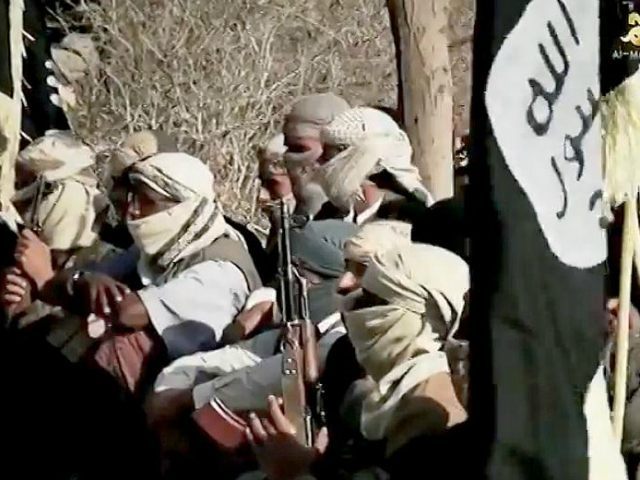Afghanistan has once again become a breeding ground for al Qaeda (AQ) training camps, as the Obama administration focuses on combating the Islamic State (ISIS/ISIL) and a resurgent Taliban in the country, reports the New York Times (NYT).
This revelation comes more than 14 years after the U.S.-led invasion of Afghanistan drove out al Qaeda and toppled the Taliban government that backed them.
“Even as the Obama administration scrambles to confront the Islamic State and resurgent Taliban, an old enemy seems to be reappearing in Afghanistan: Qaeda training camps are sprouting up there, forcing the Pentagon and American intelligence agencies to assess whether they could again become a breeding ground for attacks on the United States,” notes the Times.
“Most of the handful of camps are not as big as those that Osama bin Laden built before the Sept. 11, 2001, attacks,” it adds. “But had they re-emerged several years ago, they would have rocketed to the top of potential threats presented to President Obama in his daily intelligence briefing. Now, they are just one of many — and perhaps, American officials say, not even the most urgent on the Pentagon’s list in Afghanistan.”
The emergence of new Qaeda training camps comes amid deteriorating security conditions across Afghanistan.
“In the second half of 2015, the overall security situation in Afghanistan deteriorated, with an increase in effective insurgent attacks and higher A.N.D.S.F. [Afghan National Defense and Security Forces] and Taliban casualties,” reported the Pentagon two weeks ago.
Al Qaeda’s deadly resilience in Afghanistan reportedly caught the Obama administration and the government of Afghanistan by surprise.
“Until this fall, American officials had largely focused on targeting the last remaining senior Qaeda leaders hiding along Afghanistan’s rugged, mountainous border with Pakistan,” acknowledges NYT.
“At least in public, the administration has said little about the new challenge or its strategy for confronting the threat from Al Qaeda, even as it rushes to help the Afghan government confront what has been viewed as the more imminent threat, the surge in violent attacks from the Taliban, the Haqqani network and a new offshoot of the Islamic State,” it adds. “Former administration officials have been more outspoken — especially those who were on the front lines of the original battle to destroy Al Qaeda’s central leadership.”
Michael Morell, the former deputy director of the C.I.A. whose book, The Great War of Our Time, recounts the efforts of the Bush and Obama administrations to destroy the Qaeda leadership, expressed concern about the reemergence of al Qaeda in Afghanistan.
“I do worry about the rebirth of AQ in Afghanistan because of what their target list will be — us,” Morell, told the Times.
“It is why we need to worry about the resurgence of the Taliban,” he added, “because, just like before, the Taliban will give Al Qaeda a safe haven.”
A senior Obama administration official offered a different assessment, saying the uptick in AQ activity can be attributed to the Pakistani military pushing the group’s fighters across the border into Afghanistan, rather than the terrorist group enlisting new recruits inside Afghanistan.
“In October, American and Afghan commandos, backed by scores of American airstrikes, attacked a Qaeda training camp in the southern part of the country that military officials said was one of the largest ever discovered,” reports the Times. “The assault, which took place over several days, pounded two training areas — one sprawled over 30 square miles — that featured elaborate tunnels and fortifications. As many as 200 fighters were killed, American officials said.”
“Senior administration officials concede that there are other Qaeda camps or bases, including at least one in Helmand Province, though they are not certain exactly how many because they were made harder to detect after the October assault,” it adds. “The senior officials — four from three different federal agencies — spoke on the condition of anonymity to discuss confidential intelligence assessments.”
Col. Michael T. Lawhorn, a spokesman for the U.S. military in Afghanistan, declined to discuss “any current intelligence we may have on Al Qaeda training camps,” according to the Times.
Gen. John F. Campbell, the top commander of U.S. and NATO forces in Afghanistan, has been sounding the alarm about al Qaeda in Afghanistan for months, telling American lawmakers in October that Afghan security forces “have thus far proven unable to eradicate Al Qaeda entirely.”
“Al Qaeda has attempted to rebuild its support networks and planning capabilities with the intention of reconstituting its strike capabilities against the U.S. homeland and Western interests,” testified Gen. Campbell.
The general said that U.S. and Afghan military pressure on AQ fighters had forced the group to be “more focused on survival than on planning and facilitating future attacks,” but added that continued pressure was necessary to keep Al Qaeda from gaining new footholds.
